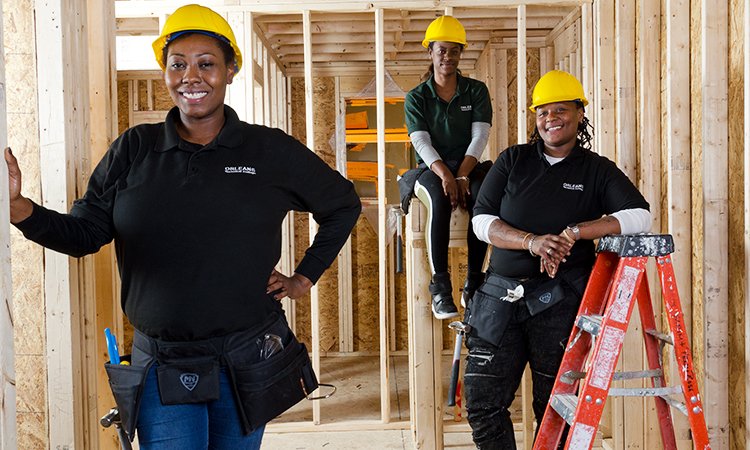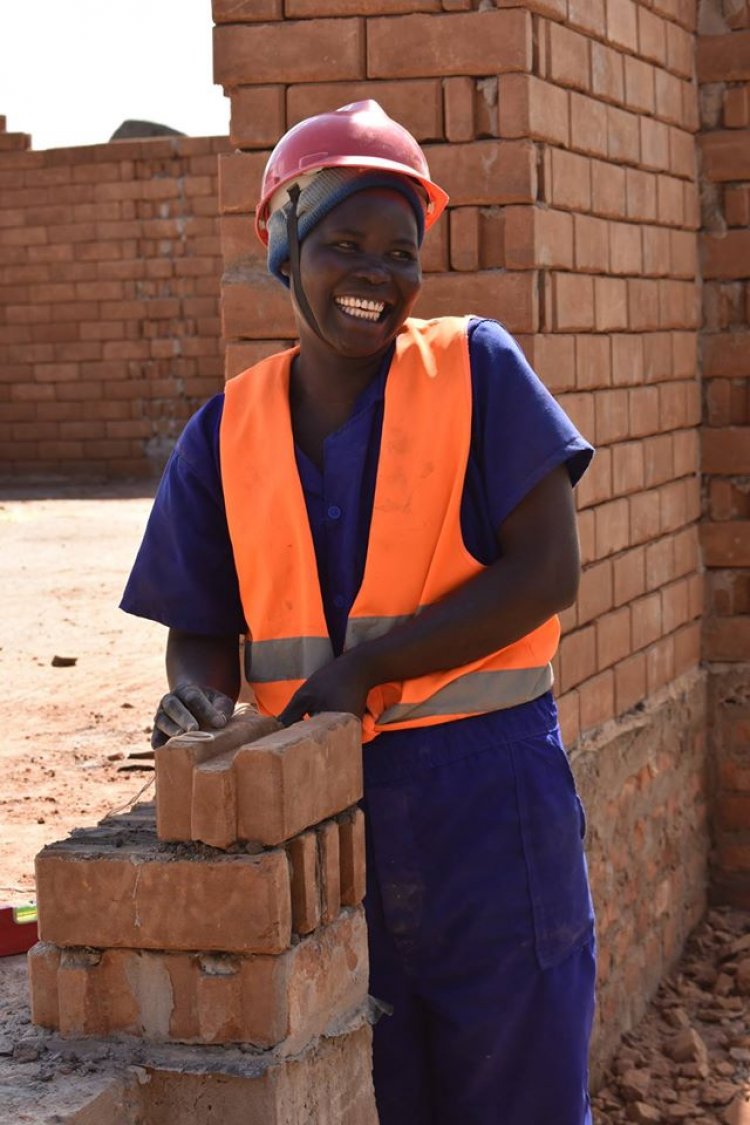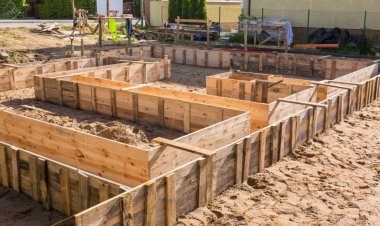Position of Women in the Construction Industry in Africa
Despite the successful stories of women turning the tables in the construction business, they face a lot of drawbacks such as cultural biases, large male dominance, discrimination, lack of access to training, work-life balance and wage gap.

The construction industry is a rapidly growing sector that offers diverse career opportunities from architecture, and engineering to technical trade. African women are breaking cultural barriers and stereotype aspects by empowering and equipping themselves with unique skills and taking part in the construction industry through the building of roads and dams, construction of houses, apartments, painting and conducting interior and exterior decorations.
It takes a phenomenal work ethic for a woman to step out of their comfort zone and pursue a career in an industry that is historically masculine-dominated. Most African countries have set in place learning programs and courses in higher learning institutions and TVET centres offering training programs in architecture, building technology, civil engineering, quantity surveying, plumbing works, masonry and interior design just to mention a few.
In Uganda's urban hubs women and girls are advancing in equal education opportunities put in place. The government is promoting women's empowerment by setting up more learning centres and advocating equal opportunities for both genders unlike previously when our mothers were anticipated to marry young and give rise to large families. Equality in Uganda has made many young hardworking women engage in construction industries like Akanyesiga Dauphine who took a short course in construction and has previously worked in constructing and setting up an early childhood development centre.
In Uganda, Elizabeth Tabu inspires many people after completion and certification of her tertiary education. She works as a mason on various construction sites something she does with much passion and commitment. She says, "My Kids are happy to see their mum working in construction, it has given me the skills to earn a living".

[File image of Elizabeth Tabu at a construction site.Source: Haileybury Youth Trust]
South Africa being a patriarchal society has various ideal organizations empowering women in the construction industry. South African Women In Construction And Built Environment(SAWIC&BE) was founded with a vision of empowering women to gain access to contracts, training, finance and networks in construction. SAWIC&BE has seen to it that many women have gained access and opportunities in various construction firms after specializing and equipping themselves with the needed building skills.
A role model, mentor and founder of a South African construction firm, Thandeka Nombanjinji-Nzama tells of her inspiring journey in the construction industry and how she overcame all hurdles as her mission was to challenge what she considered an unhealthy male hegemony entrenched in the South African construction game. She further narrates the discrimination she underwent from male colleagues by giving her simple roles like wiping windows while they shared all the big and challenging work amongst themselves while chest-thumping that one needs a very tough skin in this industry and not cower.
Upon coming into reality with the disheartening unspoken challenges in construction she opted to take the bull by its horns and establish a construction firm becoming an advocate for all women in construction. A survey by the country's construction board found just 11% of sector professionals were women. About a quarter of the biggest construction firms are at least 51% or more female-owned.
Women in Kenya are still fixing the construction jigsaw and navigating ways for more inclusion in this lucrative sector. Last year, according to the Engineers Board of Kenya only seven per cent of registered engineers were women. The Board of Registration of Architects and Quantity Surveyors indicates that just eight per cent of registered architects and ten per cent of registered quantity surveyors are women. More advocacy needs to be done through training, mentorship and seminars to catalyse women to part take roles in the construction industry some of which are conducted by state agencies alongside non-governmental organizations such as Women Fundis in Construction. Other agencies must also come into the limelight and advocate for the same.
A painter and decorator Harriet Mwangi in Kenya narrates how she developed willpower and resilience in her profession. She says her biggest challenge as an artisan in construction is the mentality that people have towards women in this sector. "Women in construction sites are only expected to sell food or fetch water".
In Nigeria, women make up only 16.3% of the construction profession putting into consideration how prime the construction industry is of massive importance to the country's economy, due to its contribution to the country's Gross Domestic Product. Women in Nigeria play an essential role in the industry from manual labour to management roles such as architects, engineers, project managers and construction supervisors. Several organizations are championing inclusion and diversity in the sector such as the Nigeria Institute of Architects' Female Architects of Nigeria (FAN)
Abiola Ladokun, the Chief Executive Office of Rullion Capacity Builders, a construction and engineering company has provided employment for thousands of people operating in Nigeria and the United Kingdom. Olajumoke Adenowo is also celebrated and praised as a top-notch architecture and interior designer in Nigeria for embracing authenticity. Her journey in architecture wasn't marked by a single groundbreaking moment but rather a continuous zeal.
Middle East countries such as Egypt are flourishing in construction however, women have overcome previously set religious barriers and learnt skillfully what is anticipated of them. Zeinab Ramadan is proud to be an engineer. She started working in the construction field where she acquired a lot of experience. "I encourage all girls to follow their dreams whether it is in engineering or other fields relating to construction", uttered Ramadan.
Other countries such as Rwanda, Botswana, Tanzania, and Congo are also putting measures to emphasise the importance of supporting women in the construction industry. Some of them have dared to explore through participating in mentorship and training programs thus taking a step towards creating a more diverse and inclusive construction industry.
Despite the successful stories of women turning the tables in the construction business, they face a lot of drawbacks such as cultural biases, large male dominance, discrimination, lack of access to training, work-life balance and also wage gap. State governments need to address and ensure fairness and extreme unprejudice to enhance productivity, workforce, diversity and performance in the sector.
There is growing awareness of the need to encourage women's participation in construction work and it is pivotal to continue seeking opportunities for growth and development. The construction industry is constantly evolving and changing and every woman out there needs to continue to learn, grow and develop skills. Researchers should identify shortages in the construction workforce thereby attracting more women to it could help bridge gaps.
If you have a real estate press release or any other information that you would like featured on the African Real Estate Blog Post do reach out to us via email at [email protected]

























![4 Indigenous Tribes Living in Huts in East Africa [PHOTOS]](https://realestateblogpost.com/uploads/images/2023/06/image_380x226_6482dd8b5c94a.jpg)







